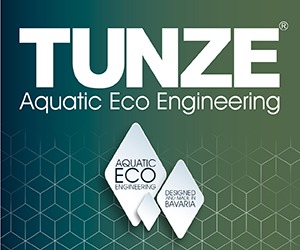by Saltwater Smarts | Sep 22, 2016 | Reef, Science
Water changes…the more, the merrier (within reason)In a recent meandering conversation I had with my freshwater-pond-keeping brother-in-law, the question of water change volume and frequency was raised—specifically whether it’s stressful to the livestock if you perform them too frequently or change out too much water at once. My take on the question is that when it comes to water changes, the more, the merrier (within reason). With that said, I do need to qualify this position with a few important caveats. Before I do, however, I should emphasize that this post is actually a thinly veiled attempt to get readers to join the conversation on the topic, so if you have any insights to share, please do so in the comment section below.Anyhow, getting back to my caveats: The parameters must match With our beloved reef organisms hailing from one of the most stable environments on earth, it’s critical to avoid subjecting them to precipitous fluctuations in water parameters. Frequent water changes won’t be a source of stress if you’re always careful to match the temperature, salinity, pH, alkalinity, etc. of your replacement water to that of your display tank. by AquaNerd | Sep 21, 2016 | Equipment, MACNA, Reef, Science
VarioS-8 DC Circulation pump The new and soon to be released VarioS-8 Controllable Circulation pump was on display at the CoralVue booth at MACNA this past weekend. For those of you that couldn’t make it to the show, here’s a peak of it in action. Rated at 2700GPH and 18 feet of head pressure this pump sure turned some heads at the show. The controller features multiple pause times and it’s the only pump we are aware of that comes standard with it’s own float switch and a 01-10v input for a 3rd party control via an aquarium controller such as the GHL Profilux, Neptune Apex or Vertex Cerebra. The pump also comes out of the box with a suction screen strainer to help keep unwanted larger by AquaNerd | Sep 20, 2016 | Aquaculture, Fish, Reef
Quality Marine does it again with more aqua-cultured species of fish. Read the official press release below. September 9, 2016 – Los Angeles – Quality Marine is proud to announce the arrival of aqua-cultured Flame Angels & Multicolor Angels at our Los Angeles Facility. These animals are a Quality Marine exclusive being bred and raised at a partner culture facility. This marks the first time an aqua-cultured Multicolor Angel has been commercially available and as such, quantities for this initial shipment are extremely limited. While Flame Angels have been offered in North America before, it has been some time since this last happened. Flame Angels (Centropyge loriculus) is a fairly common fish in the Central Pacific ocean. They generally occur in less than 60m of by Gary Parr | Sep 19, 2016 | MACNA, Podcast, Reef, Science
Make plans now for MACNA 2017 in New Orleans.
It’s time for our MACNA 2016 wrap-up show. Hear about all of the things we weren’t able to talk about during our MACNAcasts. Also, if you missed them during the show, be sure to listen to our three MACNAcasts, which are packed with guests. Links to the MACNAcasts are at reefthreads.com. Also, make your plans now for MACNA 2017 in New Orleans. Download the podcast here, or subscribe to our podcasts at iTunes. Also, follow us on Twitter at reefthreads.—Gary and ChristineMACNAcasts
MACNA 2016, Day 1
MACNA 2016, Day 2
MACNA 2016, Day 3
by Barry Brown | Sep 19, 2016 | Conservation, Reef, Science
Good afternoon all, we just finished with the kids from the CIEE Research Station in Bonaire, we had 12 kids total meaning we did two submersible runs yesterday and one this morning. For years you have heard me me say “we have the kids from Bonaire coming today” well finally I have time to throw a short post out there for you all. So what does CIEE mean?? I actually had to look it up as my guess didn’t even come close.. It means “Council on International Educational Exchange” and folks this is a big organization, here is the link… www.ciee.org CIEE is a nonprofit, nongovernmental organization, CIEE is the country’s oldest and largest nonprofit study abroad and intercultural exchange organization. by Saltwater Smarts | Sep 18, 2016 | Equipment, Invertebrates, Reef, Science
Ever notice that there are lots of articles and posts out there with titles like “The Top 10 Mistakes Novice Marine Aquarists Make”? Considering that newcomers are generally much more susceptible to making major errors than their experienced counterparts are, this stands to reason. However, just because the slip-up spotlight is usually focused on newbies doesn’t mean experienced hobbyists never make mistakes. In fact, they still make their share of blunders, most of which stem from complacency or overconfidence.So, turnabout being fair play—and to give hobby newcomers a break for a change—let’s look at what I would consider the 5 most common mistakes experienced marine aquarists make: 1. Failing to test Experienced hobbyists may like to believe they can ascertain the nitrate level in their tank by simply sniffing the water (“Mmm, smells like 20 ppm to me. Time for a water change!”), but the fact of the matter is, routine testing of water parameters is just as important for advanced hobbyists as it is for newbies. True, they probably have a pretty solid maintenance regimen in place, so water-quality problems aren’t likely to develop suddenly







